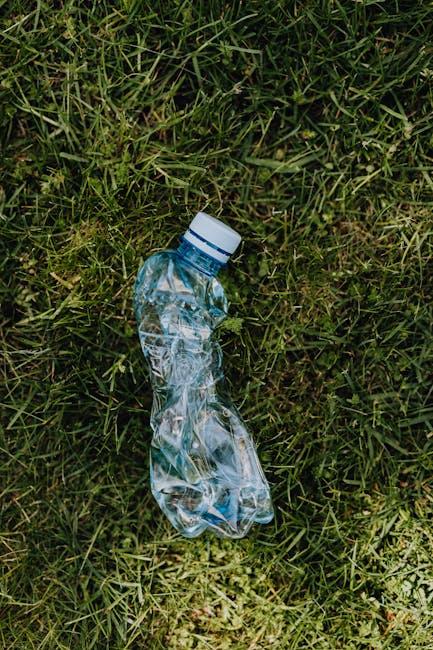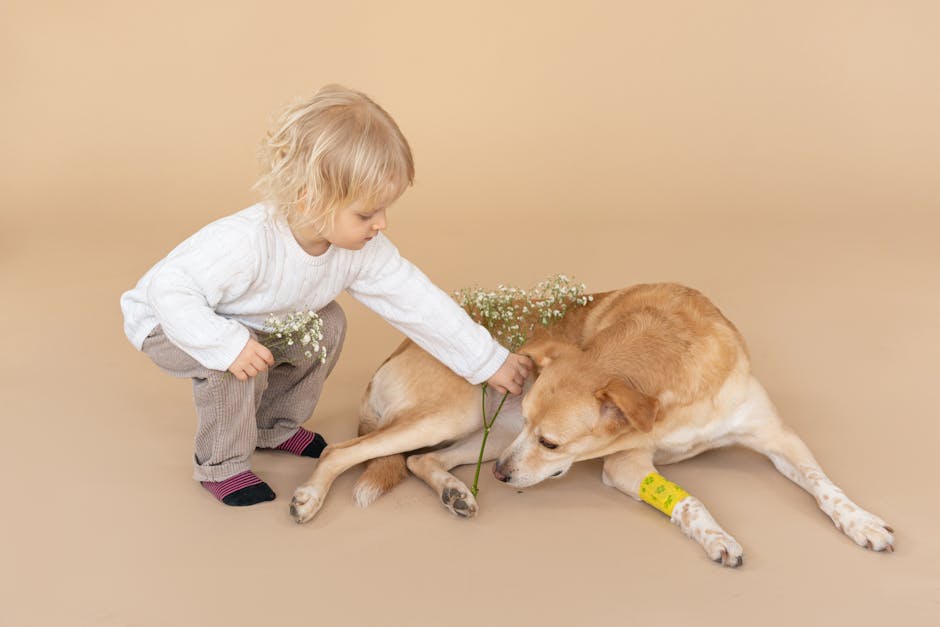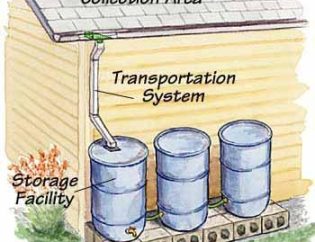
environment“>Understanding the Impact of Garden Waste on the Environment
Garden waste may seem harmless, but it actually has a pretty big impact on the environment. Here’s why:
When garden waste is thrown in the trash, it often ends up in landfills where it decomposes and releases harmful greenhouse gases like methane. **This contributes to global warming and climate change, which is no laughing matter!**
Instead of trashing your garden waste, consider composting it! Composting not only reduces the amount of waste going to landfills, but it also creates nutrient-rich soil that can be used to grow more plants. **Who knew recycling could be so literal?**
So next time you’re tempted to toss your garden waste in the trash, remember the impact it has on the environment. **Do your part to reduce greenhouse gas emissions and compost that garden waste instead!**

Choosing Composting Techniques for Organic Debris
So you’ve decided to take the plunge into composting your organic debris? Congrats! You’re about to embark on a smelly, yet fulfilling journey. But before you dive in, there are a few different composting techniques you can choose from to turn your kitchen scraps into nutrient-rich soil for your garden.
One popular option is vermicomposting, which involves using worms to break down your organic waste. You can think of it as a never-ending buffet for your slimy friends. Plus, worm castings are like gold for your plants! Just make sure to keep your worm bin away from extreme temperatures, or you might end up with some very unhappy guests.
If worms give you the heebie-jeebies, you might want to consider hot composting instead. This method involves turning your pile regularly to speed up the decomposition process. It’s like a workout for your compost! Just be prepared to break a sweat and invest in a good pitchfork.
For those who prefer a more hands-off approach, cold composting might be the way to go. Simply create a pile of organic material and let nature do its thing. It’s like a slow-cooker for compost! Just be patient and don’t expect instant results.
Utilizing Green Waste Recycling Services for Larger Jobs
So, you’ve got a big job on your hands – maybe you’re landscaping your entire yard or doing a major backyard renovation. Whatever the case may be, one thing’s for sure: you’re going to have a lot of green waste to deal with. Instead of trying to cram it all into your regular trash bin and hoping for the best, why not utilize green waste recycling services?
Believe me, these services are a game-changer when it comes to dealing with larger jobs. Not only will they take care of all that pesky green waste for you, but they’ll also recycle it in an environmentally-friendly way. It’s like hitting two birds with one stone – or, should I say, recycling two cans with one truck?
Plus, using green waste recycling services means you won’t have to worry about making multiple trips to the dump or figuring out how to fit everything into your car. Let the professionals handle it, and you can sit back and relax with a cold drink in hand – you’ve earned it!
So, the next time you’re faced with a big job that involves a lot of green waste, remember: green waste recycling services are your new best friend. Trust me, you won’t regret it!

Exploring Natural Methods for Weed and Pest Control
Let’s face it – weeds and pests are like annoying neighbors that just won’t leave you alone. But who needs toxic chemicals to get rid of them when Mother Nature has provided us with some pretty awesome alternatives? Here are some natural methods to keep your garden weed and pest-free:
Weed Control:
- Spread mulch like a cozy blanket around your plants to suffocate weeds.
- Get down and dirty by hand-pulling weeds – it’s like therapy for your garden.
- Plant some ground cover plants like creeping thyme or clover to outcompete the weeds.
Pest Control:
- Invite some friendly predators like ladybugs and lacewings to the garden party to snack on those pesky pests.
- Sprinkle diatomaceous earth around your plants – it’s like walking on broken glass for bugs.
- Make a spicy spray with garlic, onion, and cayenne pepper to give pests a taste of fire.

Adopting Sustainable Mulching Practices for Garden Health
When it comes to mulching your garden, it’s time to think outside the box…or bag! While traditional mulching practices may seem like the easiest option, there are plenty of sustainable alternatives that can benefit your garden’s health in the long run.
Instead of reaching for that plastic-wrapped mulch from the store, why not consider using some unconventional, yet eco-friendly options? Here are a few ideas to get you started:
- Grass Clippings: Don’t waste those lawn trimmings! Spread them around your garden beds for a natural and nutrient-rich mulch that will make your plants green with envy.
- Leaves: Who needs a leaf blower when you have a free and endless supply of mulch right in your backyard? Shred those fallen leaves and layer them on thick for a cozy blanket that will keep your garden warm and toasty.
- Coffee Grounds: That morning pick-me-up can also give your plants a boost! Mix used coffee grounds into your mulch for a caffeine kick that will have your garden percolating with growth.
Not only will these sustainable mulching practices help keep your garden healthy and thriving, but they will also save you money and reduce your environmental impact. So, why not give them a try and show your garden some love the green way?
Creating Habitat Spaces with Garden Debris for Wildlife Support
In the quest to support local wildlife, one man’s trash is indeed another critter’s treasure! Instead of tossing out all your garden debris, why not repurpose it into cozy habitat spaces for our furry and feathered friends? Not only will you be helping the environment, but you’ll also attract a diverse array of wildlife to your backyard. It’s a win-win!
Here are some fun and creative ways to transform everyday garden debris into wildlife support havens:
- Twiggy Hideaways: Pile up fallen branches and twigs in a corner of your yard to create natural shelters for small mammals, birds, and insects. It’s like a five-star hotel for wildlife!
- Leafy Labyrinths: Rake up autumn leaves into mazes and tunnels for squirrels and rabbits to frolic in. Who knew that yard work could be so entertaining for our furry friends?
- Rocky Residences: Stack up rocks and stones to build tiny crevices and caves for frogs, toads, and insects to seek refuge in. It’s like constructing a mini wildlife apartment complex!
So why let all that garden debris go to waste when it could be providing much-needed habitat spaces for our local wildlife? Get creative, have fun, and watch as your backyard becomes a bustling wildlife sanctuary!
Harnessing Rainwater for Efficient Garden Debris Management
Imagine a world where garden debris doesn’t pile up in your yard, leaving you feeling overwhelmed and defeated. Well, guess what? You can make that dream a reality by harnessing the power of rainwater! By utilizing this abundant resource in your garden, you can efficiently manage all of that pesky debris that seems to magically appear overnight.
So how exactly does rainwater help with garden debris management, you ask? Allow me to enlighten you with some clever tips and tricks:
- Compost Heaven: Use rainwater to create the perfect environment for composting. Moisture is key to breaking down organic materials, so by collecting rainwater in a designated compost area, you can speed up the decomposition process and turn that debris into nutrient-rich soil for your garden.
- Debris Deterrent: Place rainwater collection barrels strategically around your garden to catch falling leaves, twigs, and other debris before they have a chance to clutter up your pristine landscape. This way, you can easily dispose of the debris or repurpose it in your compost pile without having to spend hours raking and cleaning up.
By thinking outside the box and harnessing the power of rainwater, you can revolutionize the way you manage garden debris. Say goodbye to the days of endless yard work and hello to a garden that practically cleans itself with a little help from Mother Nature!
FAQs
Got debris? No problem! Here’s how you can clean up your garden the eco-friendly way.
Q: How can I get rid of leaves and twigs without creating waste?
A: Why not recruit some hungry critters to do the job for you? Encourage natural decomposition by leaving debris on the ground for insects and worms to feast on. They’ll break down the organic matter, returning nutrients back to the soil.
Q: What’s a fun way to dispose of fallen branches and sticks?
A: Get crafty and turn those branches into a DIY project! Build a rustic fence, create a unique trellis for your climbing plants, or even construct a stylish wooden pathway. Who knew debris could be so versatile?
Q: How can I prevent grass clippings from ending up in the landfill?
A: Ditch the bag and let your grass clippings stay put on your lawn. They’ll act as a natural mulch, keeping moisture in the soil and providing nutrients to your grass. Plus, it saves you time and effort – double win!
Q: Any inventive ways to repurpose fallen leaves?
A: Channel your inner artist and turn those leaves into works of art! Use them for leaf rubbings, create leaf garlands for decoration, or press them between pages of a book to make botanical bookmarks. Nature’s beauty knows no bounds!
Q: How can I dispose of garden waste responsibly?
A: When all else fails, compost it! Set up a compost bin in your garden and turn your organic debris into nutrient-rich soil for your plants. It’s a win-win for the environment and your garden’s health. Happy gardening!
Happy Gardening and Go Green!
Now that you’ve learned all about eco-friendly ways to remove debris from your garden, it’s time to put those tips into action. Remember, a little bit of creativity and a whole lot of green thinking can go a long way in keeping your garden clean and sustainable.
So grab your rake, shovel, and maybe even a few unexpected tools like old pantyhose or a kitchen colander, and get to work making your garden a cleaner, greener place. Your plants, your wallet, and the environment will thank you!










